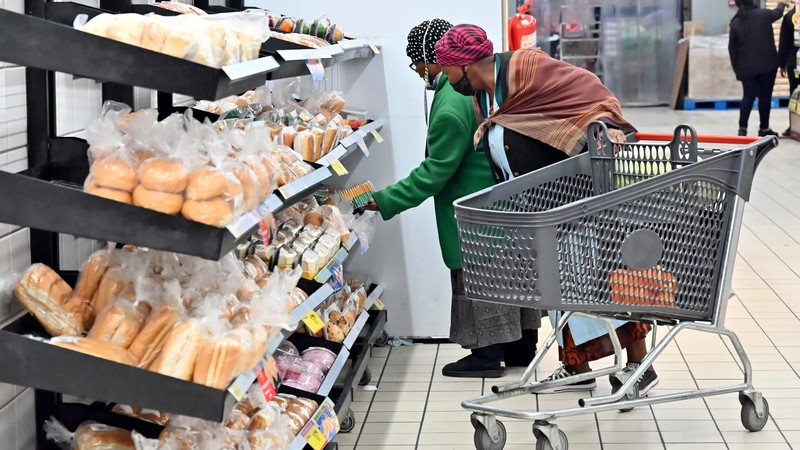Consumer prices in South Africa are expected to tick upwards on the back of global pressures and rising oil prices in the wake of escalating war in the Middle East.
This is despite the consumer price inflation (CPI) remaining unchanged at 2.8%, matching April’s five-year low.
Statistics South Africa (Stats SA) said on Wednesday that inflation was mainly driven by faster price increases for food and non-alcoholic beverages, housing and utilities, and clothing and footwear.
However, Patrick Kelly, chief director for price statistics at Stats SA, said these increases were offset by slower inflation in alcoholic beverages and tobacco, restaurants and accommodation services, and personal care and miscellaneous services while transport prices declined sharply.
“Food & non-alcoholic beverages is the only category that contributed to the monthly increase in the CPI. Meat, specifically beef, is a key factor behind the rise in food inflation,” Kelly said.
“The annual rate for meat jumped from 3.0% in April to 4.4% in May. In April, monthly increases for beef products ranged from 6.2% to 11.9%.”
Paul Makube,senior agricultural economist at FNB Commercial, said they were not surprised at this development as prices at producer level surged across the livestock complex with average class A beef carcass prices breaching the R70/kg level for the first time in history.
Makube said prices accelerated despite the disease outbreaks that have now complicated the price outlook and the domestic supply dynamics.
“The foot‑and-mouth disease (FMD) outbreak is now in full swing, resulting in an export ban and a quarantine of affected establishments. The quarantine has created a short supply crunch due to the inability to slaughter,” Makube said.
“Further, the constrained import supplies due to avian influenza (AI)-induced ban on South Africa’s biggest poultry meat supplier Brazil elicited further upside for prices particularly the mechanically deboned meat (MDM) which is used in the manufacturing of products such as polony, etc. SA is a net importer of MDM due to lack of domestic capacity.”
However, Stats SA said fuel prices dropped by 1.1% between April and May, pulling the annual rate down to ‑14.9%.
This was the largest annual decrease for fuel since October 2024 when the rate was -19.1%. Petrol is 15.9% and diesel 12.6% cheaper than a year ago.
On a monthly basis, the CPI increased 0.2%, slightly below the 0.3% rise recorded in April, marking the lowest monthly increase in five months.
The upside price pressures continued to outweigh fuel deflation as the core inflation, which excludes food and energy costs, was also steady at 3% year-on-year and remained its lowest reading since July 2021.
This comes as Israel and Iran continue to exchange fire with missiles as hostilities escalate and the war enters the second week in the region while Israel also continues to bombard Palestine.
Disruption in the Middle East could have far-reaching economic consequences as it could raise global oil prices, push inflation higher and force the South African Reserve Bank (Sarb) to pause its monetary policy easing.
A key concern is potential disruption to the Strait of Hormuz, a critical chokepoint through which about 18–19 million barrels per day, or roughly 20% of global oil consumption, passes.
Nedbank economist Busisiwe Nkonki said inflation could drift upwards in the second half of the year, but still averaging a muted 3.5% in 2025.
However, Nkonki said risks to the inflation outlook have worsened in recent days, as the rand weakened and global oil prices jumped due to the conflict in the Middle East.
“Food prices will increase as the base continues to normalise. However, favourable crop prices resulting from good rainfall, as well as increased livestock slaughtering, will contain the upside.
“The biggest concern is the rand. While the domestic currency has been resilient in recent weeks, it remains vulnerable to unfavourable global economic and geopolitical developments.
“The Monetary Policy Committee will have to weigh the benign inflation outlook against the potential upside risks emanating from the highly volatile and uncertain global environment. At this stage, we still see room for the Sarb to cut further in July.”
BUSINESS REPORT
